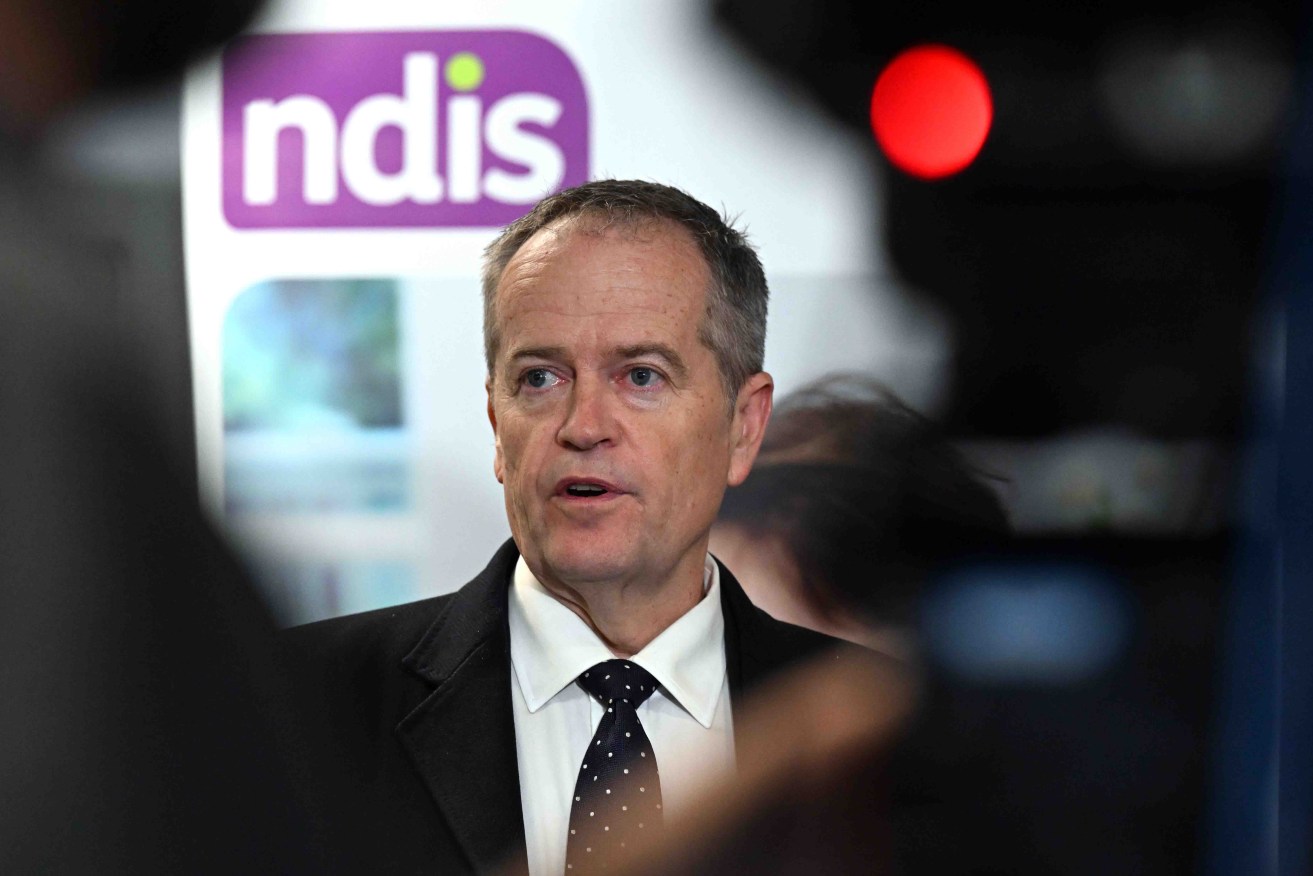‘Oasis in the desert’: Report says NDIS needs major, rapid change
A review of the National Disability Insurance Scheme has made 26 recommendations aiming to return balance to what it calls an inadequate and overstretched support ecosystem.

NDIS minister Bill Shorten will outline further reforms to the scheme in a speech to the National Press Club on Thursday. Photo: Mick Tsikas/AAP
Australians with disabilities have limited choice or control over services because the support ecosystem is too reliant on the government’s disability scheme, a landmark report says.
The National Disability Insurance Scheme supports about 631,000 Australians.
Though it was once world-leading, its effectiveness has come into question as its cost continues surging at an unsustainable 14 per cent each year.
To prevent the NDIS from eating into other parts of the federal budget, the government is aiming to contain its growth to 8 per cent while improving support by implementing structural and other changes.
On Thursday the government released an independent review of the scheme by one of the NDIS architects, Professor Bruce Bonyhady, and former senior public servant Lisa Paul.
It made 26 recommendations and 139 supporting actions on how Australia can create a support ecosystem that centres people with disabilities.
The report found the government had come to rely on the NDIS as the dominant, and sometimes only, source of support for people living with disability.
“The oasis in the desert,” the report called it.
“This has resulted in an unbalanced disability support system that relies too heavily on the NDIS at the expense of an inclusive, accessible and thriving broader disability support ecosystem.”
It found the NDIS’s efforts to cater previously generic disability supports to diverse needs had made the scheme overly complex and confusing, and had ultimately failed to change the system.
Many scheme applicants were also forced to put forward the worst versions of themselves if they wanted to receive support.
“Now we have a system where the rhetoric of choice and control is not supported by the experience of people with disability,” the report read.
“For many, poor availability of services, complexity of navigating what is available and difficulty in moving between providers means, in practice, there is little to no choice and control.”
NDIS Minister Bill Shorten thanked the review’s co-chairs and contributors for helping to drive change and is addressing the National Press Club about the issue at the moment.
“People were then anxious about the future of the NDIS and people arestill anxious. I respect and feelthat anxiety,” he told the audience.
“Because no one wants to go back to the days of the misery Olympics when Australians were at the mercy of a broken system.
“No one wants to go back to the days when Australians with disability were forced to rely on charity to fundraise for wheelchairs or a place to live.
“No one wants to go back to that midnight anxiety faced by the 80-year-old parents, carers, as they do the dishes at the end of a long day, wondering who will look after their disabled son or daughter when they no longer can.”
No quick fix
Though the review acknowledged there was no quick or easy solution to creating structural change, it made a series of recommendations.
Firstly, legislation is needed to improve the experience of participants and fulfil its original intent.
The government must also end the use of restrictive practices, and improve recruitment and retention initiatives for the disability workforce.
But one of the review’s most significant recommendations suggests implementing “foundational supports”.
These disability-specific supports must be made available to all Australians with disability regardless of whether they are on the NDIS.
They will be aimed at the 2.5 million Australians with a disability who are under the age of 65 in an attempt to ensure the scheme is no longer the sole source of disability support.
The review also suggests developing a five-year implementation roadmap for its recommendations.
The panel received nearly 4000 submissions, recorded 2000 personal stories, listened to 1000 people with disability and families and has heard directly from more than 10,000 Australians.
A coalition of disability advocacy groups welcomed the report and called for its recommendations to be implemented immediately.
“We are also clear that continued access to support for people with disability is necessary and non-negotiable,” their statement read.
“Any changes to how support is provided, either inside or outside the scheme, must not lead to any gaps in the support we receive.”
Prime Minister Anthony Albanese struck an initial deal with state and territory leaders at a national cabinet meeting on Wednesday to respond to the review.
Albanese and premiers agreed to work on new laws which he said would “improve the experience of participants and restore the original intent of the scheme, to support people with permanent and significant disability, with a broader ecosystem of support”.
The government’s full response to the NDIS review will be released in 2024.
– with AAP




